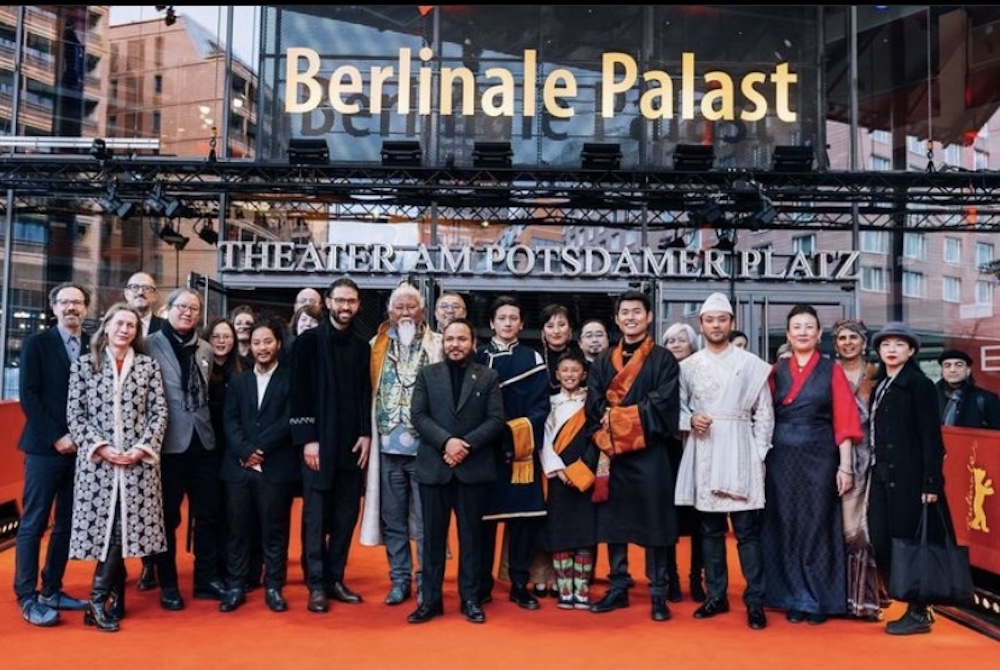By Tenzin Nyidon
DHARAMSHALA, Mar 1: In a landmark moment, the 74th Berlin International Film Festival, widely known as the Berlinale selected “Shambhala,” for inclusion in this year’s prestigious line up. Directed by Nepalese filmmaker Min Bahadur Bham and featuring a predominantly Tibetan cast, the film premiered in the esteemed Main Competition at the iconic Berlinale Palast on February 23.
Filmed entirely in the Tibetan language, this production represents a notable achievement not only for Nepalese cinema but also for the wider South Asian film landscape. Particularly noteworthy is its distinction as the first South Asian film selected for the Main Competition at the Berlinale in over three decades. The cast features talents such as Thinley Lhamo, Sonam Topden, Tenzin Dalha, Karma Wangyal Gurung, and Karma Shakya.
Shot in Dolpo, Nepal, the film centers around a woman, Pema, in a polyandrous marriage with Tashi and his two younger brothers. When Tashi fails to return from a trading trip, leaving the legitimacy of her unborn child in question, Pema embarks on a journey to find him. Amidst her search for Tashi, Pema’s journey evolves into a spiritual quest for self-discovery and liberation, transcending the mere pursuit of her missing husband.
Speaking to Phayul, on how “Shambhala” contributes to the broader conversation about diversity and representation in cinema, particularly for Tibetan and South Asian communities, Thinley Lhamo, the protagonist of the film said, “Cinema apart from being a time capsule for culture also allows the audience to peek through how people dress, speak and eat in a particular epoch; it also brings into light many unique customs of particular community. Our film focuses on this unique marriage tradition practised by certain communities. More than the face & language being represented in cinema, I feel it is of utmost importance to bring forth our way of life.”
“Our film makes an attempt to bring forth the Buddhist way of conflict resolution where, unlike the American films, we don’t seek revenge from our enemies; rather try to empathise with them and be more compassionate. Buddhism in Tibetan is “Nang Cho” which literally translates to “inner transformation”. In our film, my character, ”Pema” progresses through multiple inner transformations caused by external conflicts,” she told Phayul.










